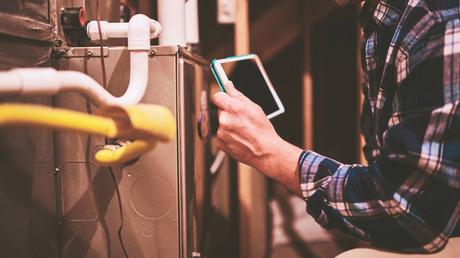
Last Updated on December 19, 2023 by Kravelv
Ensuring the safety of our homes is a top priority for homeowners. While most people take basic precautions, specific hazards may go unnoticed until it's too late.
Major housing upgrades can significantly reduce the risk of common accidents and hazards, providing a safer environment for you and your loved ones. In this article, we will explore some key upgrades that can enhance home safety.
Smoke and Carbon Monoxide Detectors
Ensuring the safety of your home begins with robust detection systems. Invest in state-of-the-art smoke and carbon monoxide detectors, essential safeguards against potential fire and gas leaks.
Ensure proper ventilation by immediately airing your home after a gas leak to dissipate any lingering fumes. Modern smart detectors, seamlessly integrated into your home, provide advanced features.
These can connect to central monitoring systems or mobile apps, offering real-time alerts even when you are away. The interconnected nature of these devices ensures that an incident detected in one part of the house triggers alarms throughout, maximizing response time.
By upgrading to these intelligent detection systems, you meet basic safety standards. You can also empower yourself with proactive measures that significantly enhance home safety, protecting your loved ones and property from potential disasters.
Home Security Systems
Investing in a comprehensive home security system is another major upgrade that can prevent burglaries and break-ins. Modern designs often include surveillance cameras, motion detectors, door/window sensors, and alarms.
Smart home security systems can also be monitored remotely, providing real-time updates and allowing homeowners to respond promptly to security threats.
Fire-Resistant Materials
Upgrading the materials used in your home can significantly impact fire safety. Consider replacing traditional roofing materials with fire-resistant alternatives. Similarly, opt for fire-resistant siding and insulation.
These upgrades reduce the risk of fire and slow down the spread of flames, providing more time for evacuation in case of an emergency.
Electrical System Upgrades
Outdated or faulty electrical systems can pose a severe hazard. To ensure the safety of your home, consider upgrading your electrical panel to accommodate modern appliances and electronics.
It's crucial to have a licensed electrician inspect and update wiring throughout your home, addressing any potential issues and bringing the system up to current safety standards.
Install ground fault circuit interrupters (GFCIs) in areas prone to water exposure, such as kitchens and bathrooms. It adds an extra layer of protection, preventing electrical shocks and enhancing overall home safety.
Prioritizing these electrical system upgrades is an investment in your household's functionality and security.
Non-Slip Flooring
Falls are a common cause of injuries at home, especially among the elderly. Upgrading to non-slip flooring in bathrooms and kitchens can significantly reduce the risk of accidents.
Various flooring options, including slip-resistant tiles and mats, are designed to provide better traction and stability.
Handrails and Grab Bars
Installing handrails and grab bars in critical areas, such as staircases and bathrooms, can assist individuals with mobility challenges and prevent falls. Ensure these fixtures are securely anchored to the wall and can support the user's weight.
This simple yet effective upgrade can enhance safety, especially for aging family members.
Window Safety
Windows is a potential hazard, particularly for young children. Upgrade your windows with safety features such as window guards or locks that restrict how far they can be opened. This prevents accidental falls and enhances childproofing measures.
Additionally, consider using shatter-resistant glass or installing protective films to minimize the risk of injury from broken glass.
Storm-Resistant Windows and Doors
Storm-resistant windows and doors are essential for homes prone to severe weather. These upgrades can protect your home from strong winds, flying debris, and water infiltration during storms.
Investing in impact-resistant glass can also deter break-ins while providing added protection against extreme weather conditions.
Plumbing Leak Detection Systems
Water damage from plumbing leaks can be a silent and costly threat to a home. Installing a leak detection system can help identify and address leaks early, preventing extensive damage.
Intelligent systems can provide real-time alerts to homeowners, enabling them to take swift action and avoid potential mold growth and structural issues.
Radon Mitigation Systems:
Radon, a colorless and odorless gas, is a naturally occurring radioactive gas that can seep into homes and pose serious health risks. Upgrading your home with a radon mitigation system can reduce radon levels, ensuring a healthier indoor environment.
Professional testing and installation are recommended to address this hidden hazard.
Final Words
Enhancing home safety through major housing upgrades is a proactive approach to protecting your family and property. From preventing fires to reducing the risk of falls and ensuring security, these upgrades create a safer living environment and add long-term value to your home.
Prioritize safety by investing in these critical upgrades to enjoy the peace of mind of a secure and hazard-free home.
